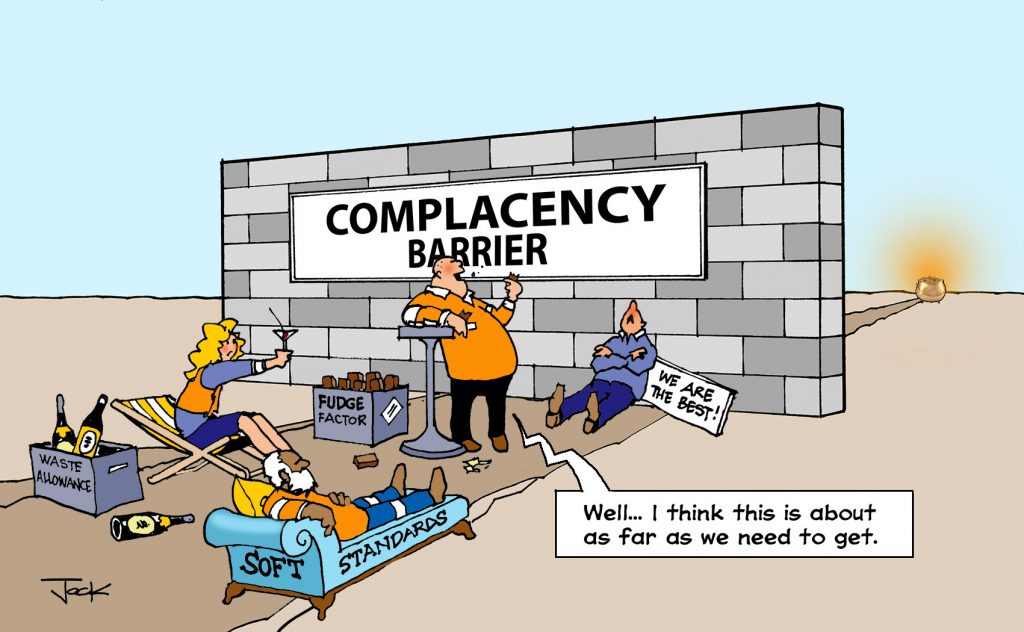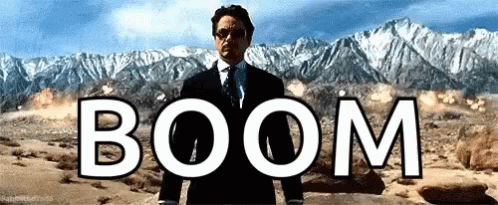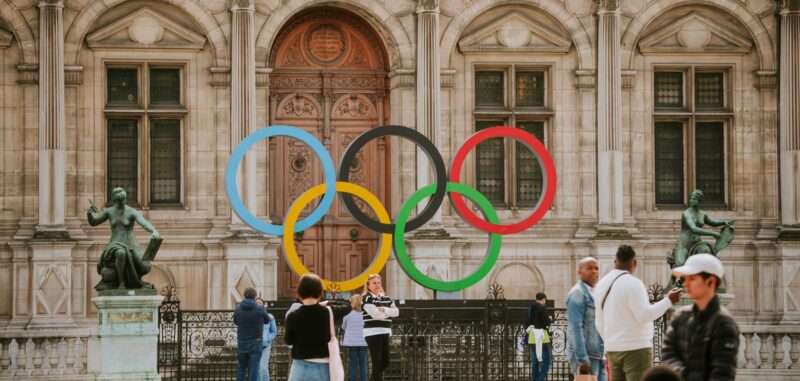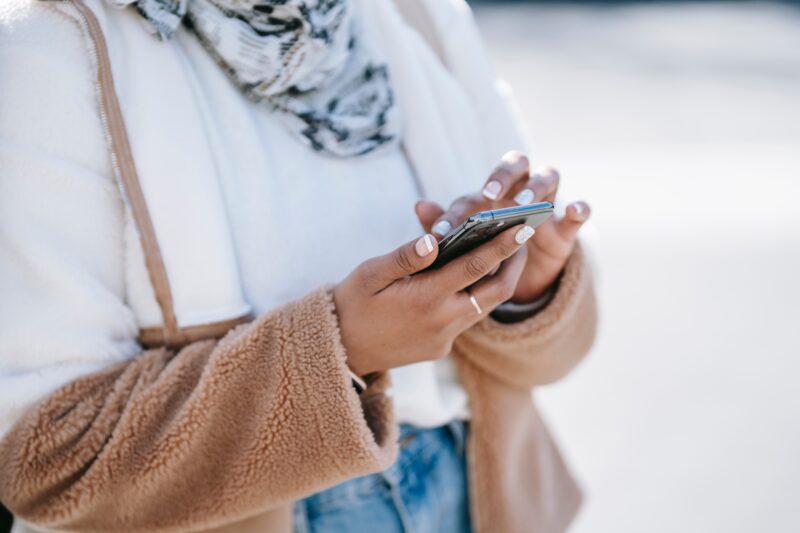Confidence complacency returns
As South Australians continue into 2020 and a sense of dodging the COVID-bullet, the community feel confident, according to the latest Square Holes mind and mood survey at the end of August / start of September. This seems good, but are we slotting back into our comfortable old ways prior to making any real innovation to drive future progress?
While as yet not back to pre-Covid levels, and below levels of May and June 2020, confidence is consistent with levels recorded since 2014, with 35% confident and 22% unconfident about the next 12 months. Younger South Australians remain more confident than older residents.
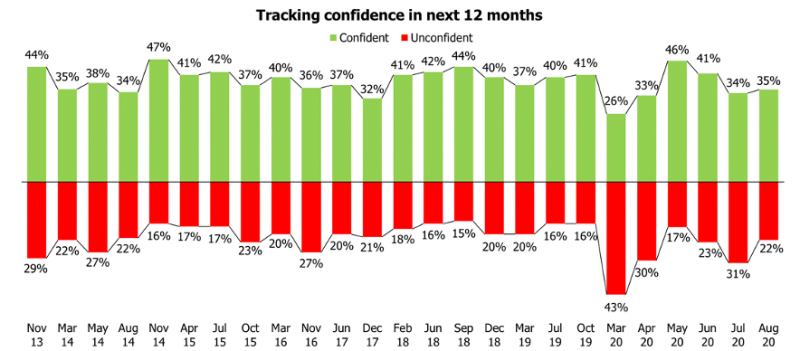
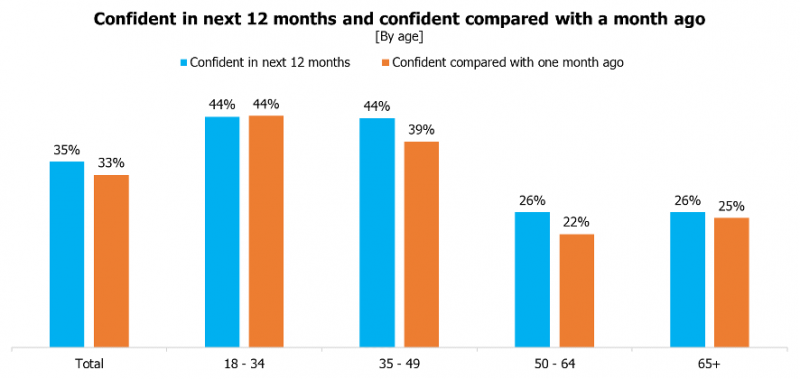
Financial security compared with 12 months ago has improved each month since March, and is now consistent with fluctuations since 2014, with 18-49 year olds more likely to feel better than 12 months ago, and 50-64 year olds more likely to feel worse. Around half of South Australians feel about the same as 12 months ago, with this level 65% of 65+ year olds.
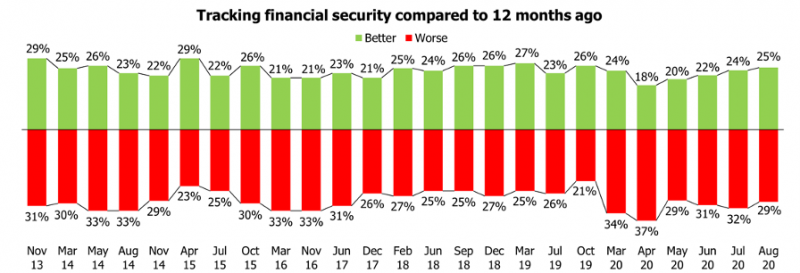
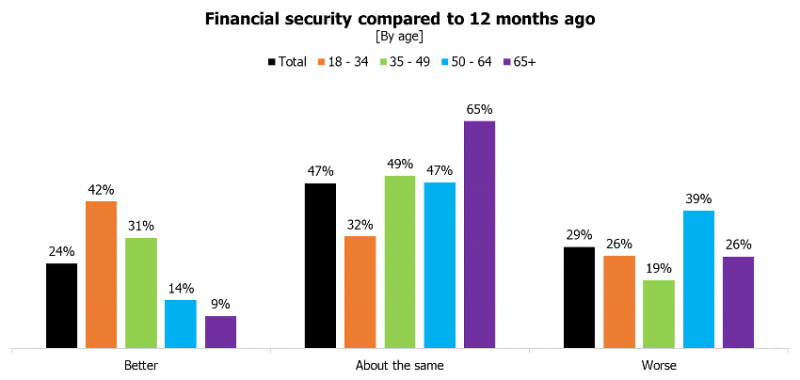
Financial security in 12 months time is also generally consistent with trends since 2014, with 24% saying their financial security will be better and 24% worse in a year. The sense of financial security towards the next 12 months decreases with age, yet the vast majority of 65+ year olds (69%) feel their financial security in 12 months will be about the same as now.
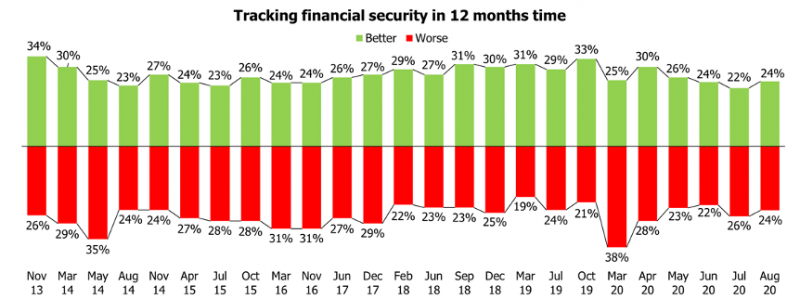
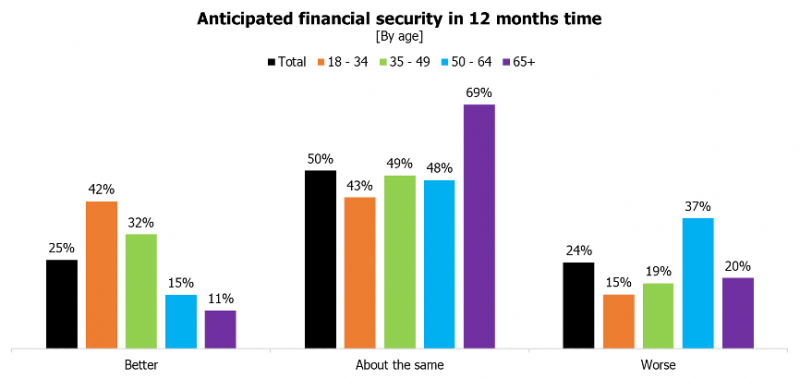
Most South Australians are feeling psychologically strong even with the stressors of 2020, with 54% feeling about the same as they were 12 months ago, and 21% better. There is stronger optimism about their mental health and wellbeing about the next 12 months, with 60% sensing it will be about the same as now, and 26% feeling it will be better, indicating a steady improvement each month since March.
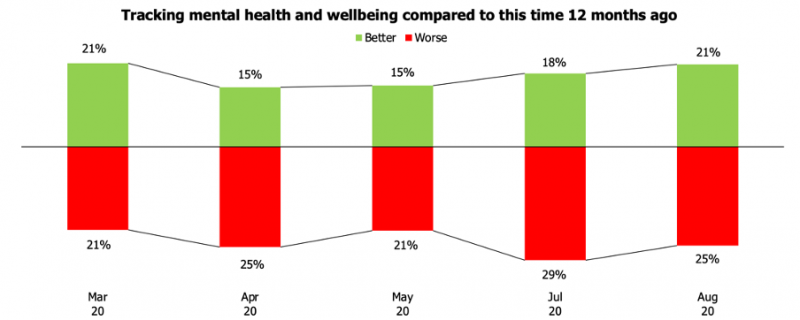
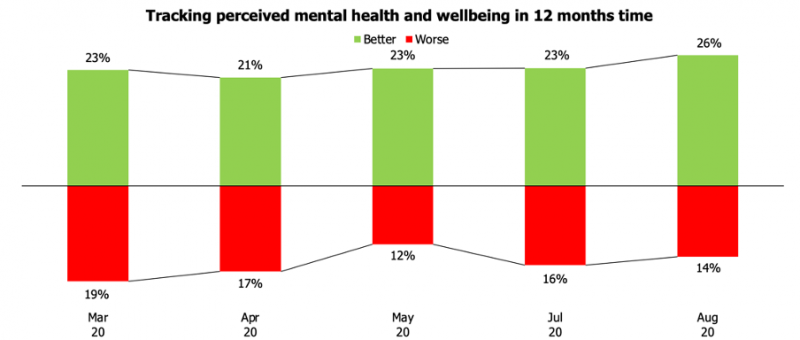
The Square Holes monitoring of health and wellbeing of South Australians since March has illustrated a generally high level of overall resilience, yet with some clearly struggling. While measures of mental health spiked in March, and stabilised April to July, the latest data for August illustrates a levels of strain of 2020, with jumps in people feeling ‘tired for no good reason’ and ‘feeling that everything was an effort.’
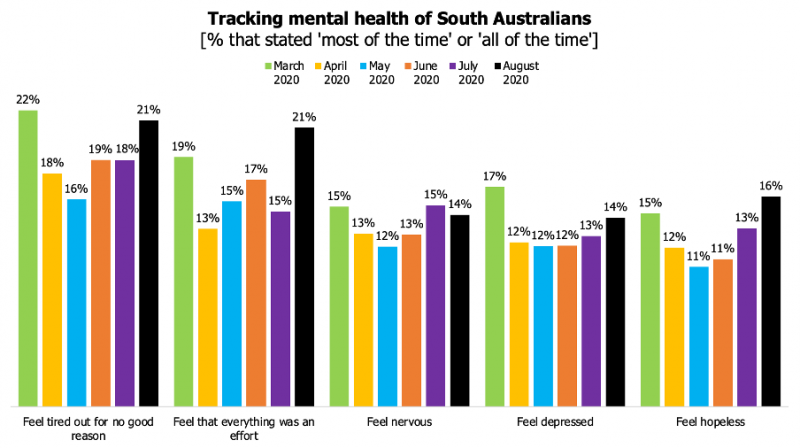
It is again interesting to observe that while younger South Australians generally feel more confident and financially secure about the next 12 months, measures of mental health and wellbeing illustrate younger people finding 2020 more psychologically challenging than older South Australians.



Square Holes’ tracking since March has illustrated the adaptivity of South Australians to the chaos of 2020. An excellent real-world illustration of human adaptability theory, whereby people have an innate ability to adjust to stressful situations, through learning, finding coping mechanisms, innovating and adapting. This year is most certainly a ‘burning deck’ for change and both forces and gives opportunity to rethink models to sustain our businesses, and wider aspects of our cultural and society. A time to create change and embrace opportunities.
The human adaptability theory notes that not everyone has the same level of tolerance to stressors, nor the same social networks and support infrastructure, and therefore it is critical that communities work together in times of need, to provide support to the vulnerable.
As noted in previous mind and mood summaries, South Australians are proud of how they dealt with the unexpected that this year has brought, and strong support for our government and leaders. Reflecting back over the updates since March, we have seen aspects of self-preservation in our supermarkets to kindness in proactively supporting the more vulnerable and local businesses likely struggling. We have seen the best and worst of people, but mostly the best.
What is also interesting is that it takes little time for South Australians to return to old arguably complacent ways, and are not motivated to innovate sufficiently to create strong economic growth that seems to be illusive, even with the strong lifestyle.
As Dr Fiona Kerr noted in her real people interview, such complacency is very Australian.
“If you get a high level of stability (as in Australia) we are like a blancmange sitting on a table. You poke it and it just stays there, and you really have to shove it off the table and hit the floor before it does anything different.”
Dr Fiona Kerr https://squareholes.com/2019/03/the-lucky-country/
